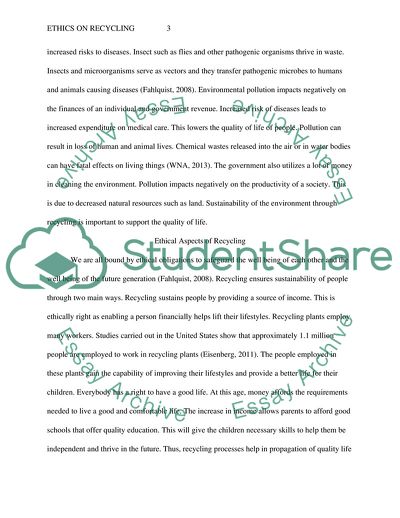Cite this document
(The Ethics of Recycling and Its Nature Coursework Example | Topics and Well Written Essays - 2000 words, n.d.)
The Ethics of Recycling and Its Nature Coursework Example | Topics and Well Written Essays - 2000 words. https://studentshare.org/environmental-studies/1822706-your-ethics-on-environmental-issues
The Ethics of Recycling and Its Nature Coursework Example | Topics and Well Written Essays - 2000 words. https://studentshare.org/environmental-studies/1822706-your-ethics-on-environmental-issues
(The Ethics of Recycling and Its Nature Coursework Example | Topics and Well Written Essays - 2000 Words)
The Ethics of Recycling and Its Nature Coursework Example | Topics and Well Written Essays - 2000 Words. https://studentshare.org/environmental-studies/1822706-your-ethics-on-environmental-issues.
The Ethics of Recycling and Its Nature Coursework Example | Topics and Well Written Essays - 2000 Words. https://studentshare.org/environmental-studies/1822706-your-ethics-on-environmental-issues.
“The Ethics of Recycling and Its Nature Coursework Example | Topics and Well Written Essays - 2000 Words”. https://studentshare.org/environmental-studies/1822706-your-ethics-on-environmental-issues.


